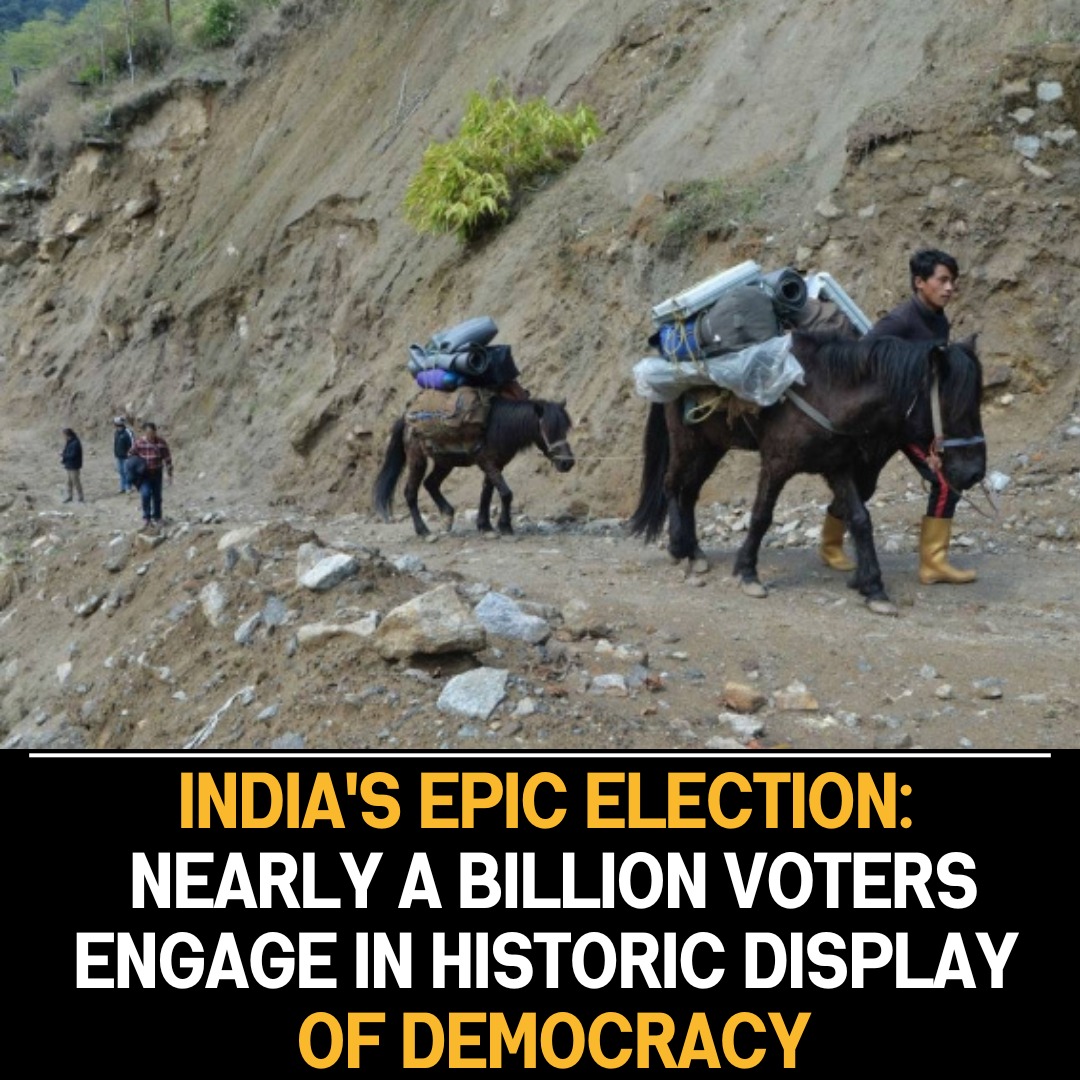India’s recent massive election, involving nearly a billion voters, underscores the remarkable scale and robustness of the country’s democratic process. As the world’s largest democracy, India regularly conducts elections of staggering magnitude, with millions of eligible voters participating in the democratic exercise.
The sheer size of India’s electorate is staggering, with close to a billion citizens eligible to cast their votes. This vast number reflects the diversity and inclusivity of Indian democracy, encompassing people from diverse backgrounds, cultures, languages, and regions. The ability of India to organize and manage such a colossal electoral process speaks volumes about the country’s administrative capabilities and logistical prowess.
The democratic process in India is characterized by its inclusivity and accessibility. Despite the challenges posed by geographic remoteness, socioeconomic disparities, and infrastructure limitations, efforts are made to ensure that every eligible citizen has the opportunity to exercise their right to vote. Special provisions, such as mobile polling stations and facilities for voters with disabilities, are often implemented to enhance inclusivity and participation.
Furthermore, India’s elections are a vibrant display of political pluralism and diversity. A multitude of political parties representing various ideologies, interests, and constituencies compete for electoral success, providing voters with a wide range of choices. This pluralistic landscape fosters healthy political competition, encourages accountability, and reflects the dynamism of Indian democracy.
The significance of India’s elections extends beyond its borders, serving as a beacon of democracy and a testament to the power of electoral participation. The peaceful conduct of elections amidst a diverse and populous nation like India showcases the resilience of democratic institutions and the commitment of citizens to democratic principles.
Moreover, India’s elections serve as a platform for political expression and social change. They provide an opportunity for citizens to voice their aspirations, grievances, and demands, shaping the direction of governance and policy-making. The electoral process allows for the peaceful transfer of power and provides a mechanism for citizens to hold their representatives accountable.
In conclusion, India’s massive election involving nearly a billion voters exemplifies the scale, inclusivity, and vibrancy of its democratic process. By organizing and conducting elections on such a grand scale, India reaffirms its commitment to democracy, pluralism, and participatory governance. The successful conduct of elections underscores the strength and resilience of India’s democratic institutions and sets an inspiring example for democracies around the world.









